| Availability: | |
|---|---|
| Quantity: | |
| Product Name | heavy duty neodymium magnets |
| Material | Neodymium (Nd), Iron (Fe), and Boron (B) |
| Size | Customized size |
| Shape | Customized (block,Disc,Cylinder, Bar, Ring,Arc,Countersunk, Segment, hook) |
| Coating | Customised (Ni, Zn, Epoxy, Gold, etc.) |
| Size tolerance | ±0.08mm for diamater / thickness, ±0.1mm for width / length |
| Density | 9.2-8.4g/cm³ |
| Magnetization | Thickness Magnetized, Axially Magnetized, Diametrally Magnetized |
| Applications | Neodymium(NdFeB) Magnet are widely used in many fields, such as motors, sensors,microphones, wind turbines, wind generators,printer, switchboard, packing box , loudspeakers, magnetic separation, magnetic hooks, magnetic holder, magnetic chuck, ect. |
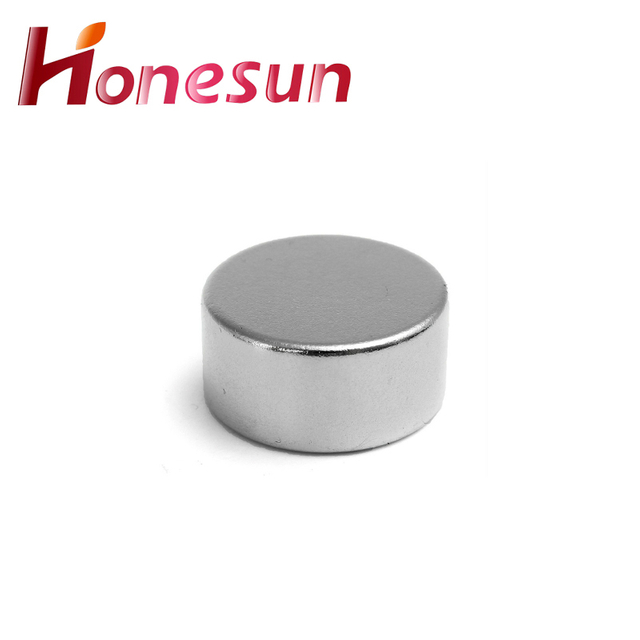
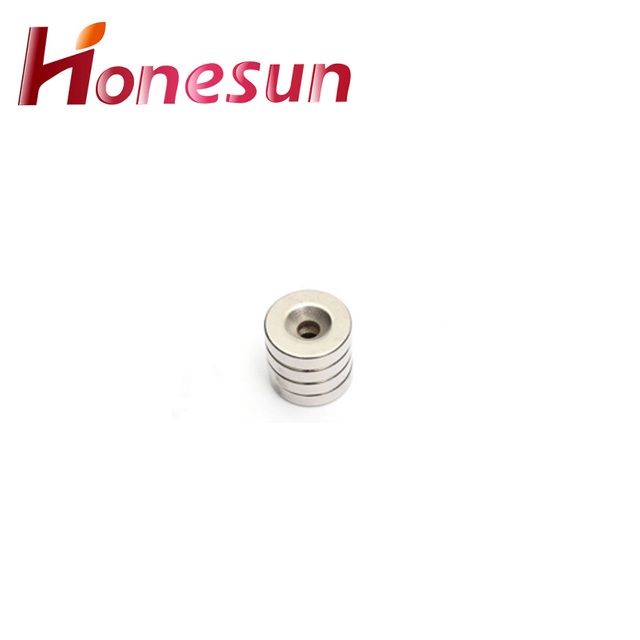
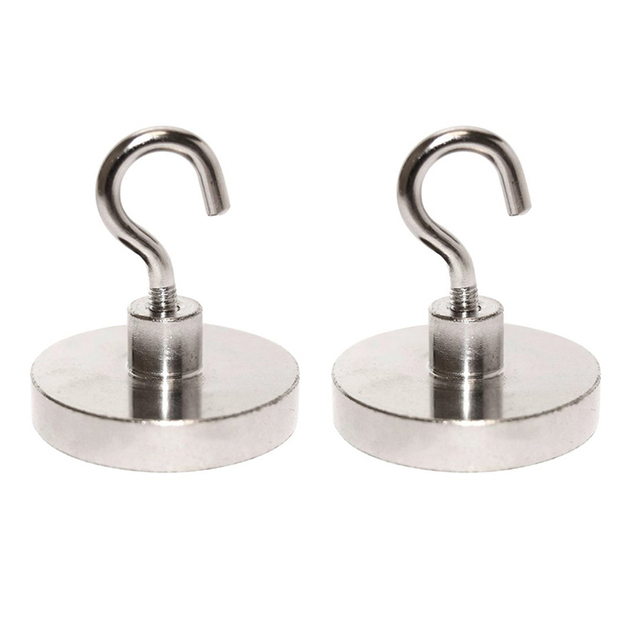
1.About heavy duty neodymium magnets R&D capabilities
Neodymium magnets are a type of rare earth magnet that is composed of an alloy of neodymium, iron, and boron. They are the strongest type of permanent magnet available and are used in a wide range of applications, from consumer electronics to industrial machinery. Neodymium magnets are highly resistant to demagnetization and have a high coercivity, making them ideal for applications that require a strong magnetic field. Neodymium magnets are typically produced through a process of powder metallurgy, which involves mixing the alloy components together and then pressing them into a mold. The resulting magnets are then heat-treated to increase their coercivity and strength. Research and development of neodymium magnets is ongoing, with new alloys and manufacturing processes being developed to improve the performance of these magnets. Research is also being conducted into new applications for neodymium magnets, such as in medical imaging and renewable energy technologies.
2.Can heavy duty neodymium magnets be used for magnetic therapy?
No, neodymium magnets are not recommended for use in magnetic therapy. Neodymium magnets are very powerful and can cause tissue damage if used incorrectly. It is best to consult a qualified healthcare professional before using any type of magnetic therapy.
3.What are the common uses of heavy duty neodymium magnets?
We operate our heavy duty neodymium magnets business with integrity and honesty. 1. Motors: Neodymium magnets are used in the production of electric motors, such as those found in cordless tools, hard disk drives, and electric vehicles. 2. Speakers: Neodymium magnets are used in the production of loudspeakers, headphones, and microphones. 3. Sensors: Neodymium magnets are used in the production of sensors, such as those found in medical imaging equipment. 4. Generators: Neodymium magnets are used in the production of generators, such as those found in wind turbines. 5. Magnetic Separation: Neodymium magnets are used in the production of magnetic separators, such as those found in recycling plants. 6. Jewelry: Neodymium magnets are used in the production of jewelry, such as magnetic bracelets and necklaces.
4.Are heavy duty neodymium magnets affected by extreme temperatures?
Yes, neodymium magnets can be affected by extreme temperatures. They can become brittle and crack if exposed to temperatures above 175°C (347°F). They can also lose their magnetism if exposed to temperatures below -45°C (-49°F).
5.Can heavy duty neodymium magnets be used for magnetic data storage?
No, neodymium magnets cannot be used for magnetic data storage. Neodymium magnets are too weak to store data reliably. Magnetic data storage requires much stronger magnets, such as rare earth magnets.
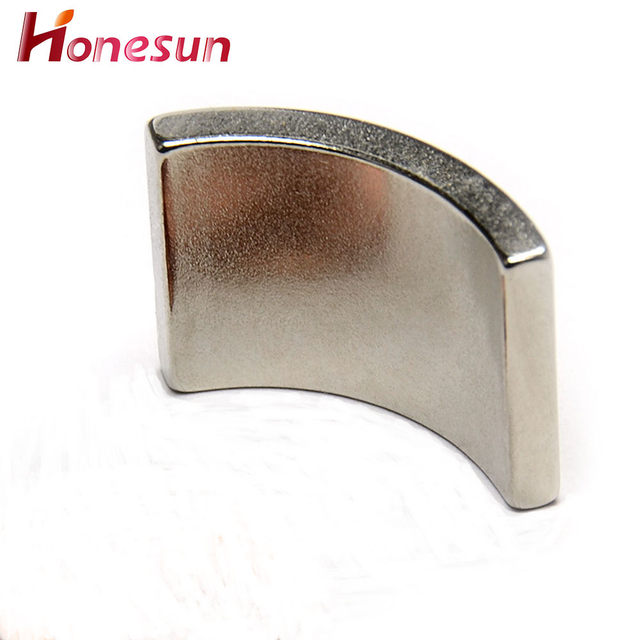
6.About heavy duty neodymium magnets production equipment
Neodymium magnets are a type of rare earth magnet that is made from an alloy of neodymium, iron, and boron. They are the strongest type of permanent magnet available and are used in a variety of applications, including motors, generators, and loudspeakers. The production of neodymium magnets requires specialized equipment, such as a vacuum furnace, a press, and a sintering furnace. The process begins with the mixing of the neodymium, iron, and boron powders in the correct proportions. The mixture is then placed in a vacuum furnace and heated to a high temperature. This causes the powders to melt and form a homogenous alloy. The alloy is then placed in a press and formed into the desired shape. Finally, the formed alloy is placed in a sintering furnace and heated to a high temperature, which causes the alloy to become a permanent magnet.
7.What are the environmental impacts of mining Neodymium for magnets?
The environmental impacts of mining neodymium for magnets can include air and water pollution, land degradation, and the destruction of habitats. Mining neodymium can also lead to the release of hazardous chemicals, such as sulfur dioxide, nitrogen oxides, and carbon dioxide, into the atmosphere. Additionally, the mining process can cause soil erosion, which can lead to the destruction of vegetation and wildlife habitats. Finally, the mining process can also lead to the release of radioactive materials, which can be hazardous to human health.
8.What are heavy duty neodymium magnets?
As one of the heavy duty neodymium magnets market leaders, we are known for innovation and reliability. Neodymium magnets are a type of rare-earth magnet made from an alloy of neodymium, iron, and boron. They are the strongest type of permanent magnet commercially available and are used in a wide variety of applications, including motors, generators, hard drives, and loudspeakers.
9.How do heavy duty neodymium magnets compare to Samarium Cobalt Magnets?
heavy duty neodymium magnets is not a product only, but also can help you comes to money-making. Neodymium magnets are the strongest type of permanent magnet available, and they are much stronger than samarium cobalt magnets. Neodymium magnets are also much more affordable than samarium cobalt magnets, making them the more popular choice for many applications. Neodymium magnets are also more resistant to corrosion and temperature changes than samarium cobalt magnets.
10.How have heavy duty neodymium magnets revolutionized the manufacturing industry?
Neodymium magnets have revolutionized the manufacturing industry by providing a powerful, lightweight, and cost-effective alternative to traditional ferrite magnets. Neodymium magnets are used in a variety of applications, from motors and generators to sensors and medical equipment. They are also used in the production of consumer electronics, automotive components, and industrial machinery. Neodymium magnets are more powerful than ferrite magnets, allowing for smaller, lighter, and more efficient designs. They are also more cost-effective, making them a popular choice for manufacturers.
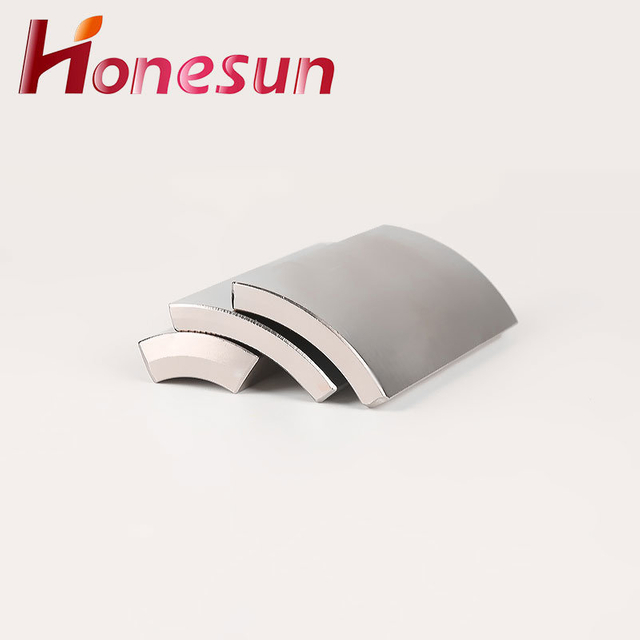
11.Are there any ethical concerns regarding the use of heavy duty neodymium magnets?
Yes, there are ethical concerns regarding the use of Neodymium Magnets. Neodymium magnets are powerful and can cause serious injury if swallowed. They can also interfere with medical devices such as pacemakers and defibrillators. Additionally, Neodymium magnets can be dangerous if used in the wrong way, such as when used to create a powerful magnetic field. Finally, Neodymium magnets can be hazardous to the environment if not disposed of properly.
12.How do you store heavy duty neodymium magnets?
Neodymium magnets should be stored in a dry, temperature-controlled environment away from other magnets or magnetic materials. They should also be stored away from moisture, heat, and direct sunlight. It is also important to keep them away from any ferrous materials, as these can cause the magnets to become magnetized and attract each other.
13.How are heavy duty neodymium magnets used in the military?
Neodymium magnets are used in the military for a variety of applications. They are used in navigation systems, guidance systems, and sensors. They are also used in weapons systems, such as magnetic mines, and in the guidance systems of missiles and torpedoes. Neodymium magnets are also used in the construction of military vehicles, such as tanks and aircraft, to reduce their weight and improve their performance.
| Product Name | heavy duty neodymium magnets |
| Material | Neodymium (Nd), Iron (Fe), and Boron (B) |
| Size | Customized size |
| Shape | Customized (block,Disc,Cylinder, Bar, Ring,Arc,Countersunk, Segment, hook) |
| Coating | Customised (Ni, Zn, Epoxy, Gold, etc.) |
| Size tolerance | ±0.08mm for diamater / thickness, ±0.1mm for width / length |
| Density | 9.2-8.4g/cm³ |
| Magnetization | Thickness Magnetized, Axially Magnetized, Diametrally Magnetized |
| Applications | Neodymium(NdFeB) Magnet are widely used in many fields, such as motors, sensors,microphones, wind turbines, wind generators,printer, switchboard, packing box , loudspeakers, magnetic separation, magnetic hooks, magnetic holder, magnetic chuck, ect. |



1.About heavy duty neodymium magnets R&D capabilities
Neodymium magnets are a type of rare earth magnet that is composed of an alloy of neodymium, iron, and boron. They are the strongest type of permanent magnet available and are used in a wide range of applications, from consumer electronics to industrial machinery. Neodymium magnets are highly resistant to demagnetization and have a high coercivity, making them ideal for applications that require a strong magnetic field. Neodymium magnets are typically produced through a process of powder metallurgy, which involves mixing the alloy components together and then pressing them into a mold. The resulting magnets are then heat-treated to increase their coercivity and strength. Research and development of neodymium magnets is ongoing, with new alloys and manufacturing processes being developed to improve the performance of these magnets. Research is also being conducted into new applications for neodymium magnets, such as in medical imaging and renewable energy technologies.
2.Can heavy duty neodymium magnets be used for magnetic therapy?
No, neodymium magnets are not recommended for use in magnetic therapy. Neodymium magnets are very powerful and can cause tissue damage if used incorrectly. It is best to consult a qualified healthcare professional before using any type of magnetic therapy.
3.What are the common uses of heavy duty neodymium magnets?
We operate our heavy duty neodymium magnets business with integrity and honesty. 1. Motors: Neodymium magnets are used in the production of electric motors, such as those found in cordless tools, hard disk drives, and electric vehicles. 2. Speakers: Neodymium magnets are used in the production of loudspeakers, headphones, and microphones. 3. Sensors: Neodymium magnets are used in the production of sensors, such as those found in medical imaging equipment. 4. Generators: Neodymium magnets are used in the production of generators, such as those found in wind turbines. 5. Magnetic Separation: Neodymium magnets are used in the production of magnetic separators, such as those found in recycling plants. 6. Jewelry: Neodymium magnets are used in the production of jewelry, such as magnetic bracelets and necklaces.
4.Are heavy duty neodymium magnets affected by extreme temperatures?
Yes, neodymium magnets can be affected by extreme temperatures. They can become brittle and crack if exposed to temperatures above 175°C (347°F). They can also lose their magnetism if exposed to temperatures below -45°C (-49°F).
5.Can heavy duty neodymium magnets be used for magnetic data storage?
No, neodymium magnets cannot be used for magnetic data storage. Neodymium magnets are too weak to store data reliably. Magnetic data storage requires much stronger magnets, such as rare earth magnets.

6.About heavy duty neodymium magnets production equipment
Neodymium magnets are a type of rare earth magnet that is made from an alloy of neodymium, iron, and boron. They are the strongest type of permanent magnet available and are used in a variety of applications, including motors, generators, and loudspeakers. The production of neodymium magnets requires specialized equipment, such as a vacuum furnace, a press, and a sintering furnace. The process begins with the mixing of the neodymium, iron, and boron powders in the correct proportions. The mixture is then placed in a vacuum furnace and heated to a high temperature. This causes the powders to melt and form a homogenous alloy. The alloy is then placed in a press and formed into the desired shape. Finally, the formed alloy is placed in a sintering furnace and heated to a high temperature, which causes the alloy to become a permanent magnet.
7.What are the environmental impacts of mining Neodymium for magnets?
The environmental impacts of mining neodymium for magnets can include air and water pollution, land degradation, and the destruction of habitats. Mining neodymium can also lead to the release of hazardous chemicals, such as sulfur dioxide, nitrogen oxides, and carbon dioxide, into the atmosphere. Additionally, the mining process can cause soil erosion, which can lead to the destruction of vegetation and wildlife habitats. Finally, the mining process can also lead to the release of radioactive materials, which can be hazardous to human health.
8.What are heavy duty neodymium magnets?
As one of the heavy duty neodymium magnets market leaders, we are known for innovation and reliability. Neodymium magnets are a type of rare-earth magnet made from an alloy of neodymium, iron, and boron. They are the strongest type of permanent magnet commercially available and are used in a wide variety of applications, including motors, generators, hard drives, and loudspeakers.
9.How do heavy duty neodymium magnets compare to Samarium Cobalt Magnets?
heavy duty neodymium magnets is not a product only, but also can help you comes to money-making. Neodymium magnets are the strongest type of permanent magnet available, and they are much stronger than samarium cobalt magnets. Neodymium magnets are also much more affordable than samarium cobalt magnets, making them the more popular choice for many applications. Neodymium magnets are also more resistant to corrosion and temperature changes than samarium cobalt magnets.
10.How have heavy duty neodymium magnets revolutionized the manufacturing industry?
Neodymium magnets have revolutionized the manufacturing industry by providing a powerful, lightweight, and cost-effective alternative to traditional ferrite magnets. Neodymium magnets are used in a variety of applications, from motors and generators to sensors and medical equipment. They are also used in the production of consumer electronics, automotive components, and industrial machinery. Neodymium magnets are more powerful than ferrite magnets, allowing for smaller, lighter, and more efficient designs. They are also more cost-effective, making them a popular choice for manufacturers.

11.Are there any ethical concerns regarding the use of heavy duty neodymium magnets?
Yes, there are ethical concerns regarding the use of Neodymium Magnets. Neodymium magnets are powerful and can cause serious injury if swallowed. They can also interfere with medical devices such as pacemakers and defibrillators. Additionally, Neodymium magnets can be dangerous if used in the wrong way, such as when used to create a powerful magnetic field. Finally, Neodymium magnets can be hazardous to the environment if not disposed of properly.
12.How do you store heavy duty neodymium magnets?
Neodymium magnets should be stored in a dry, temperature-controlled environment away from other magnets or magnetic materials. They should also be stored away from moisture, heat, and direct sunlight. It is also important to keep them away from any ferrous materials, as these can cause the magnets to become magnetized and attract each other.
13.How are heavy duty neodymium magnets used in the military?
Neodymium magnets are used in the military for a variety of applications. They are used in navigation systems, guidance systems, and sensors. They are also used in weapons systems, such as magnetic mines, and in the guidance systems of missiles and torpedoes. Neodymium magnets are also used in the construction of military vehicles, such as tanks and aircraft, to reduce their weight and improve their performance.
Honesun Industrial Co., Ltd. focuses on designing, researching, developing, manufacturing and selling Magnets and Magnetic Assemblies. With more than 15 years' rich experience and considerate services.we have been recognized as a reliable.



